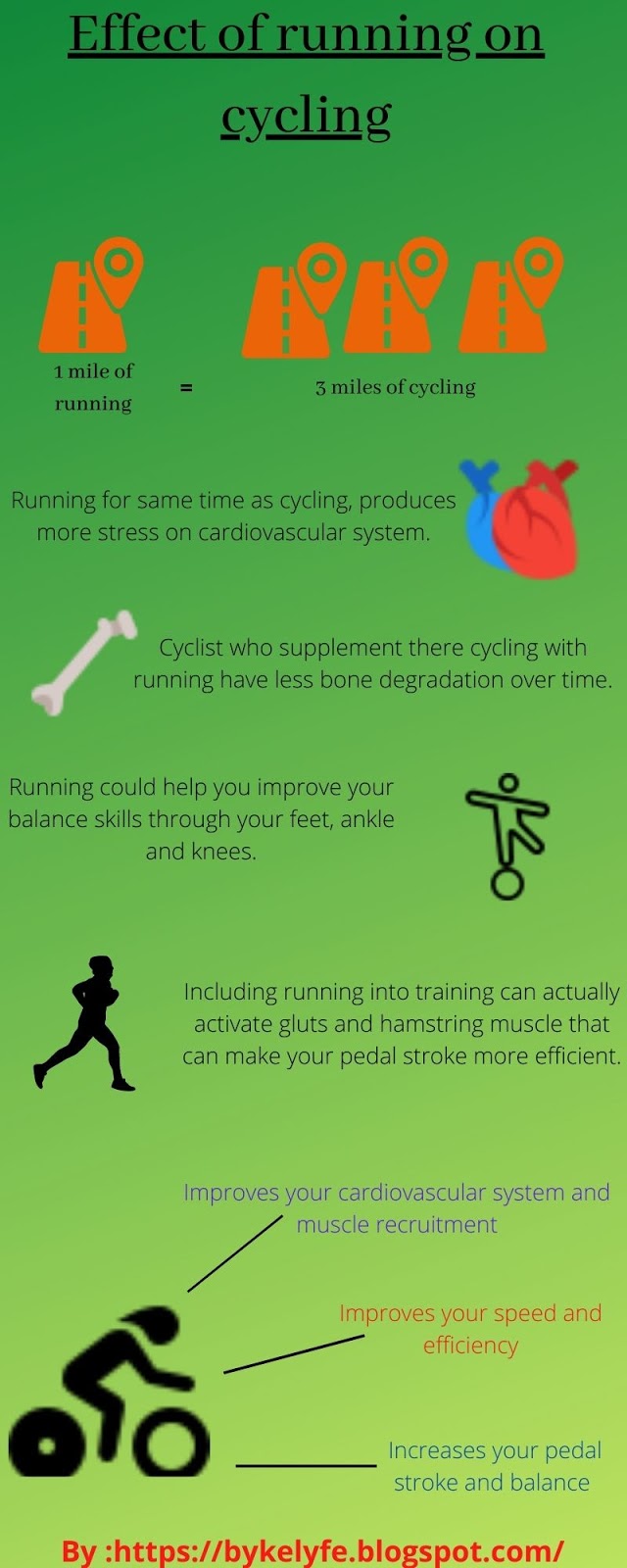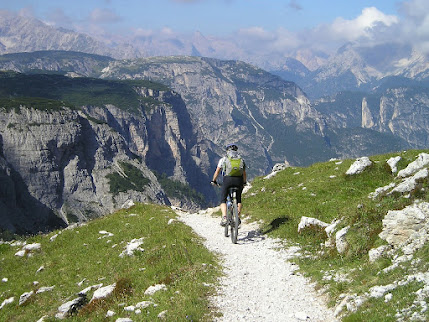Does running has any effect on cycling ?
Share this Image On Your Site
Cycling is a non-weight bearing sport with little or no impact, whereas running is a weight bearing sport that actually has impact on every stride. As much as five to seven times your body weight. So is there any way in which these two sports can complement each other? So today we'd take a closer look at this and explore the impact of running on our cycling. Running can actually help your cycling and admittedly it's a different movement but you're still going to be using one leg at a time and working your cardiovascular system. And on top of that there are quite a few other pros which we're going to cover.
Now compared to cycling, running creates a far greater load on our cardiovascular system for any given period of time. So in simplest terms if we're running for an hour, it's gonna cause an awful lot more stress on our Cardiovascular system than riding for that same period. So essentially we get fitter quicker when we're running. - Running is time efficient. Several recent studies have shown that cyclists actually have lower bone density than the control group, or the general public who don't do any exercise and probably something you don't really want to know. Yeah, but it isn't all bad news thankfully because it's been shown that cyclists who supplement their cycling with running have a lower bone degradation over time and this just lessen the chances of breaking of bones , stress fractures or any other health-related problems associated with low bone density. Everyday skills such as balance and proprioception aren't necessarily utilized that much on the bike. When it comes to running they suddenly are, and especially when it comes to off-road.
Now running helps develop these balance skills through our feet, our ankles, our knees and our hips. And in particular it improves our reaction times as we move across different types of terrain. And these improvements in our balance and proprioception can really have an effect on our handling skills particularly on the bike. So for many athletes solely riding a bike can cause them to have a lack of engagement in certain muscle groups and for lots of others it's simply a lack of core strength that allows them to produce their peak power on the bike. With the exception of a pure fitting bike fit, the majority of body problems from cycling arise from these muscle imbalances or just a lack of appropriate core strength.
So by incorporating running into your training you are naturally or most likely to be activating those gluts and hamstring muscles, which will then in turn actually help you when you come back to the bike because it's gonna make you more efficient in the pedal stroke.
But there are a few cons you need to consider as well. Firstly that weight bearing benefit we were talking about earlier can actually become a little bit of a negative if we're not careful and mindful of the running volume that we're building up. Yeah if you speak to pretty much any runner or triathlete, at some point in their career they're likely to have had a lower limb injury. And that is probably a result of increasing their training volume too quickly. So only if you increase your training volume at a low steady state, you should be able to stay injury free.
Well there is unfortunately no escaping the simple fact that replicating a bike specific workout with a run equivalent just isn't going to be possible. Yeah there's another downside to the crossover here. You're obviously using different muscle groups, now partly because of the position. Obviously cycling you're sat down. Running you're standing up and the biggest difference there being that angle at the hips which is really going to make a difference in your muscle recruitment. If you're coming from a cycling background, a thought of losing some of those hard-earned Watts can be a little depressing. But if you are new into the sport of athlete, you're gonna be supplementing some of those bike sessions with run sessions especially hard ones, you're quite likely to see that power drop off, well actually up to as much as 30 Watts or even more.
Don't just drop your runs in anywhere in your training schedule. Think about the overall picture because a hard run a night before or the day of a bike race or a big event could seriously affect that bike workout. Yeah, so just taking a little bit of time to think about where you place your workouts and your overall training plan can make the world of difference. Now it isn't necessarily intuitive to think of running as a tool to help improve our cycling but with a sensible approach there can be some positive effects.



Comments
Post a Comment